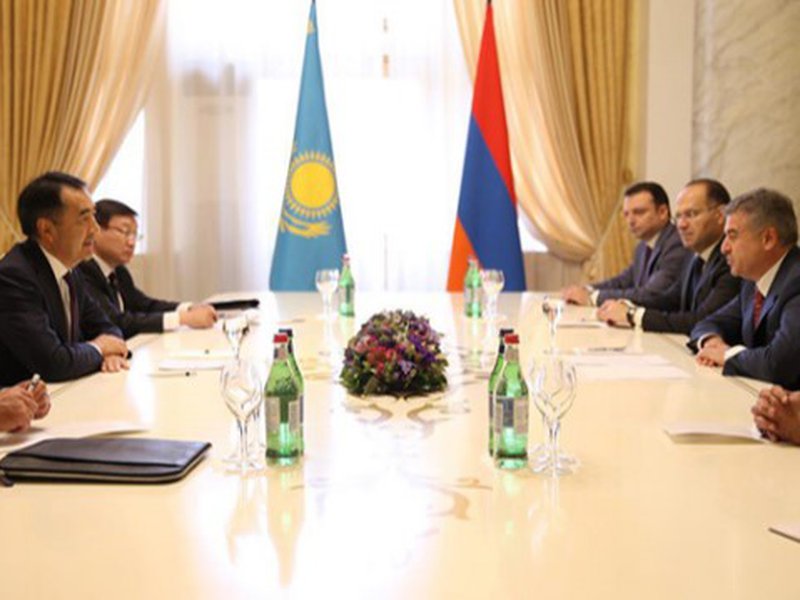Prime Minister of Kazakhstan Bakytzhan Sagintayev discussed combating international terrorism and coordination of joint Collective Security Treaty Organisation (CSTO) Collective Security Council actions during the council’s Oct. 14 meeting in Yerevan, Armenia.
“Kazakhstan has always supported and will support the joint fight against international terrorism and advocate collective efforts in combating this comprehensive threat,” Sagintayev said on behalf of Kazakh President Nursultan Nazarbayev, reported primeminister.kz.
Sagintayev stressed the importance of signing the regulation on the common list of organisations recognised as terrorist in the CSTO and the CSTO Collective Security Strategy for the period until 2025.
The council meeting focused on developments in the CSTO zone of responsibility, ways to upgrade the organisation collective security system and measures to counter international terrorism.
The council adopted more than 20 documents, including additional measures to counter international terrorism and extremism, as well as ensure military personnel training for the armed forces of CSTO member states up to 2020.
President of Russia Vladimir Putin, President of Belarus Alexander Lukashenko, President of Kyrgyzstan Almazbek Atambayev, President of Tajikistan Emomali Rahmon and the CSTO Secretary General Nikolay Bordzyuzha participated in the event.
The next meeting of the CSTO Collective Security Council will be in 2017 in Belarus.
Earlier in the day, the Kazakh delegation headed by Sagintayev met with an Armenian delegation headed by Prime Minister Karen Karapetyan in the framework of participation in the CSTO Collective Security Council’s session.
The sides discussed cooperation in trade, economy, infrastructure, investments and tourism, as well as in holding a Kazakh-Armenian business forum in 2017.
Sagintayev and Karapetyan also discussed developing bilateral cooperation in the framework of the Eurasian Economic Union (EAEU.)
The CSTO is composed of Armenia, Belarus, Kazakhstan, Kyrgyzstan, Russia and Tajikistan. The organisation’s fundamental objective is to strengthen relations in the foreign policy, military and military-technical spheres and coordinate joint efforts to combat international terrorism and other security threats, according to the organisation’s website.
